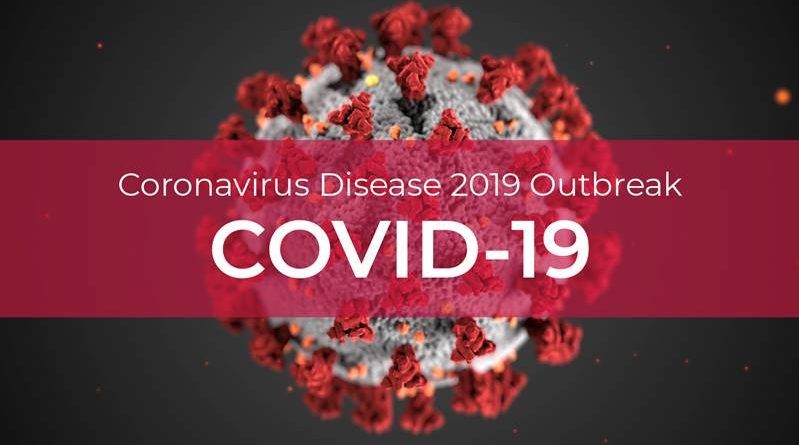Omicron: What we know about symptoms – Aljazeera news
A new coronavirus (or SARS-CoV-2) variant, known as Omicron (or B.1.1.529), was first identified by scientists in South Africa on November 24.
The latest variant of the virus that causes the COVID-19 disease is believed to be more transmissible than the already highly transmissible Delta variant. Omicron has already been detected in 106 countries, the WHO has said.
Scientists are also concerned that the variant’s high number of mutations may help it evade vaccinations.
When Delta became the predominant variant, cold-like upper respiratory symptoms became more common, while the loss of taste and smell became less common than in other variants.
With Omicron, some experts have said the symptoms appear to be milder than Delta, while others say it is too soon to confirm.
What are the most common symptoms of Omicron?
Dr Angelique Coetzee, the South African doctor who first alerted authorities to the presence of the new COVID-19 variant, has said muscle aches, fatigue, a scratchy throat and night sweats are common Omicron symptoms.
Early data released on 16 December by the COVID Symptoms Study, run by the health science company Zoe and King’s College London, said cold-like symptoms were the most commonly reported by people with the new Omicron variant.
The data showed that the top five symptoms reported in the app for Omicron infection were a runny nose, headache, fatigue (either mild or severe), sneezing, and a sore throat.
The World Health Organization’s top official in Europe Hans Kluge said 89 percent of those with confirmed Omicron infections in Europe reported symptoms common with other coronavirus variants, including cough, sore throat, fever.
Are Omicron symptoms milder than with other variants?
Coetzee has described the symptoms of Omicron as “very, very mild” compared with those of the Delta variant. She also said that, unlike in other variants, patients have not reported loss of smell or taste and there has been no major drop in oxygen levels with the new variant.
A South African study, which has yet to be peer-reviewed, has suggested there are reduced risks of hospitalisation and severe disease in people infected with the Omicron coronavirus variant versus the Delta one, though the authors say some of that is likely due to high population immunity.
But researchers at Imperial College London (ICL) have said, “We find no evidence (for both risk of hospitalisation attendance and symptom status) of Omicron having different severity from Delta,” although it added that data on hospitalisations remains very limited. Their study is also not yet peer-reviewed.
Experts have also been concerned that the speed at which Omicron appears to spread will offset any reduction in severity.
What impact do vaccines have on symptoms?
Experts have said symptoms of Omicron infection in vaccinated people might be even milder than in those who are unvaccinated, which could lead to the cases to be missed.
Christina Marriott, chief executive of the Royal Society for Public Health (RSPH) said, “Growing evidence shows that people who’ve received two doses of the vaccine typically present with less severe symptoms, such as headache, runny nose, sneezing, sore throat, and loss of smell.
“It’s important for people who’ve been fully vaccinated to stay vigilant for cold-like symptoms and get tested if they’re living or working around people who are at greater risk from the disease.”
Some early data suggests that current vaccinations may offer less protection against infection by Omicron.
The United Kingdom’s Health Security Agency (UKHSA) said that early, non-peer-reviewed data from a study (PDF) suggested that an initial two-dose vaccination course provided less protection against mild disease from Omicron compared with the Delta strain.
But it found boosters restored the protection to an extent – giving an estimated 70 percent to 75 percent protection against mild disease from the new Omicron variant.
How long is Omicron’s incubation period?
The time it takes for an infected person to develop symptoms may be shorter for Omicron than for previous variants, from a full week down to as little as three days or fewer.
“That’s why the spread is occurring at a much faster pace,” said Dr Anita Gupta, an anaesthetist and critical care physician at the Johns Hopkins School of Medicine.
She added that it is possible the incubation period could be shorter or longer depending on a number of variables, including age, underlying health problems and vaccination status.
How do you protect yourself and others?
The WHO has advised the following steps to protect yourself and prevent the spread of COVID-19:
- Get vaccinated
- Wear a mask
- Maintain physical distancing
- Ventilate indoor spaces
- Keep good hygiene
- Self-isolate if you develop symptoms
Source: Al Jazeera and news agencies




